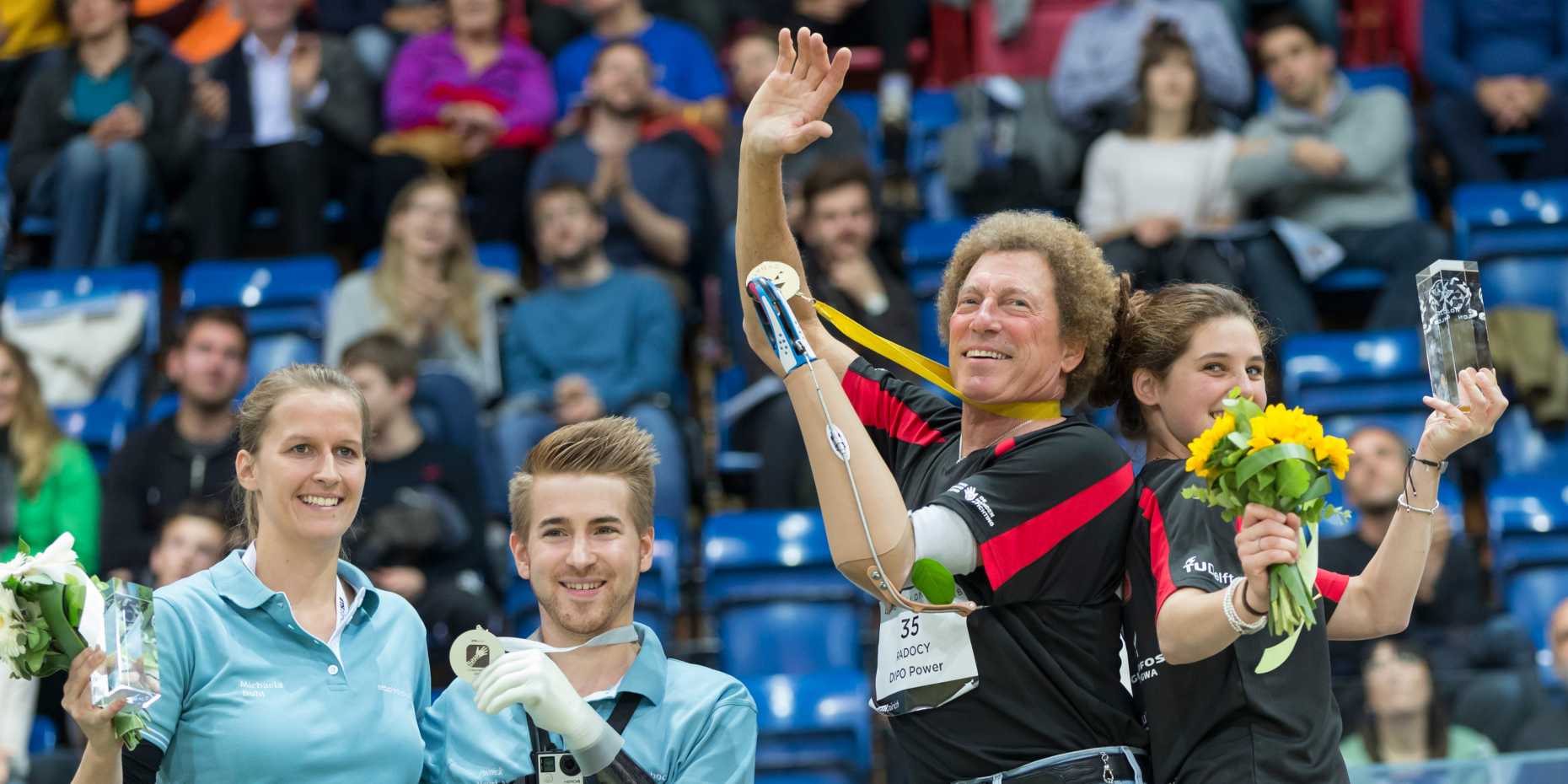A unique competition takes off
The very first Cybathlon in the world took place today. The event was completely sold out: some 4,600 visitors packed into the SWISS Arena Kloten to support the 66 teams from various countries. The pilots pitted their skills in six disciplines and demonstrated most impressively how novel technologies can assist people with disabilities in their daily life.

It was a full day of gripping competitions. As the pilots concentrated intently on their task, the audience in the SWISS Arena cheered them on enthusiastically. Each pilot at the Cybathlon was accompanied by a team; around 400 contestants took part in all.
On the programme were six disciplines: 12 pilots lined up for the Powered Leg Prosthesis Race (LEG), and the same number for the Powered Wheelchair Race (WHEEL), the Functional Electrical Stimulation Bike Race (FES) and the Brain-Computer Interface Race (BCI). 10 pilots demonstrated their ability in the Powered Arm Prosthesis Race (ARM), and 8 pilots took part in the Powered Exoskeleton Race (EXO). Due to the competition regulations, however, not all of the participating teams could be assessed. There were seven teams from Switzerland at the event, two of which were from ETH Zurich. At the end of the day a winning team was announced for each of the categories (see box below).
What technology can achieve
The sporting performances were impressive, and the event achieved its goal – to encourage researchers and developers to make progress on assistive technologies. At the end of a successful day, ETH President Lino Guzzella summed up: “What began as ETH Professor Robert Riener’s vision has burgeoned into a major international event. Today, the Cybathlon thrilled spectators from all over the world and demonstrated most impressively just what technology has to offer in assisting humans”. He emphasised: “Developing solutions that help advance our society: this is what ETH Zurich stands for.”
International interest
Robert Riener, Cybathlon initiator and Professor for Sensory-Motor Systems at ETH Zurich was also very happy: “People with a physical disability that restricts daily life – these are the real winners of the Cybathlon. And as we have seen today, great things can be achieved when their needs directly influence the development of new assistive technology! I am very proud of the work of almost 70 teams, and delighted that the Cybathlon has awakened such interest worldwide.”
Some 150 international media representatives attended the world’s very first Cybathlon. They joined the spectators (including 120 guests in wheelchairs) in the packed arena to applaud the competing teams. Swiss radio and television (SRF) streamed the event live and made it their theme for the day.
Exhibitions and volunteers in abundance
The Cybathlon was also an opportunity for the approximately 4,600 visitors to find out for themselves what modern assistive technology has to offer. They could travel over uneven terrain in a wheelchair, or control a computer game by thought process at the various PluSport stands. A further exhibition covered the history of assistive technical appliances.
Some 600 volunteers and a large number of ETH Zurich staff were on hand to ensure the event ran smoothly. A second Cybathlon is planned to take place in four years’ time.
Winners of the six disciplines
Robert Radocy, Team DIPO Power – Powered Arm Prosthesis Race (ARM)
Mark Muhn, Team Cleveland – Functional Electrical Stimulation Bike Race (FES)
Florian Hauser, Team HSR Enhanced – Powered Wheelchair Race (WHEEL)
Andre Van Rueschen, Team ReWalk – Powered Exoskeleton Race (EXO)
Numa Poujouly, Team Brain Tweakers – Brain-Computer Interface Race (BCI)
Helgi Sveinsson, Team OssurRheoKnee – Powered Leg Prosthesis Race (LEG)
